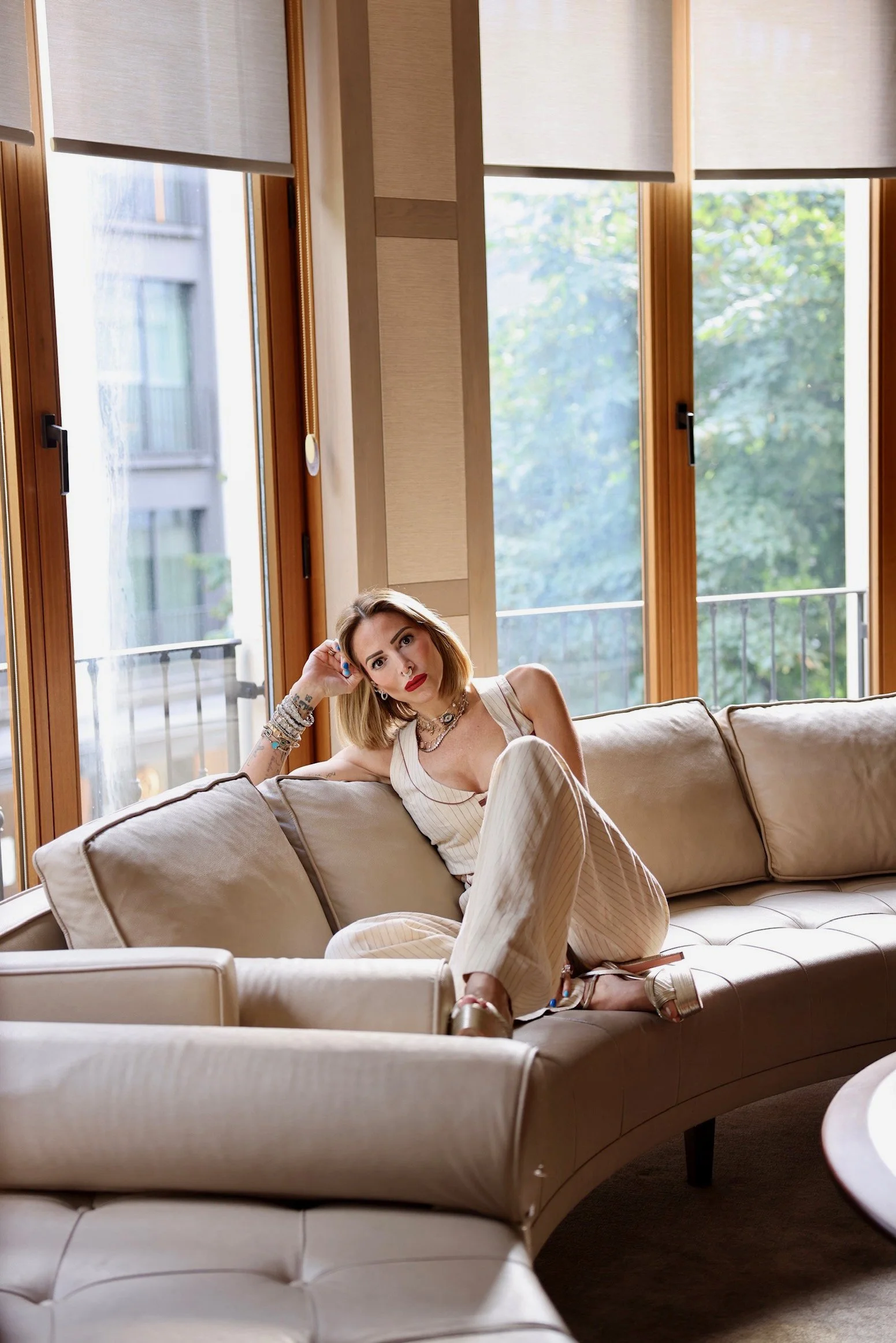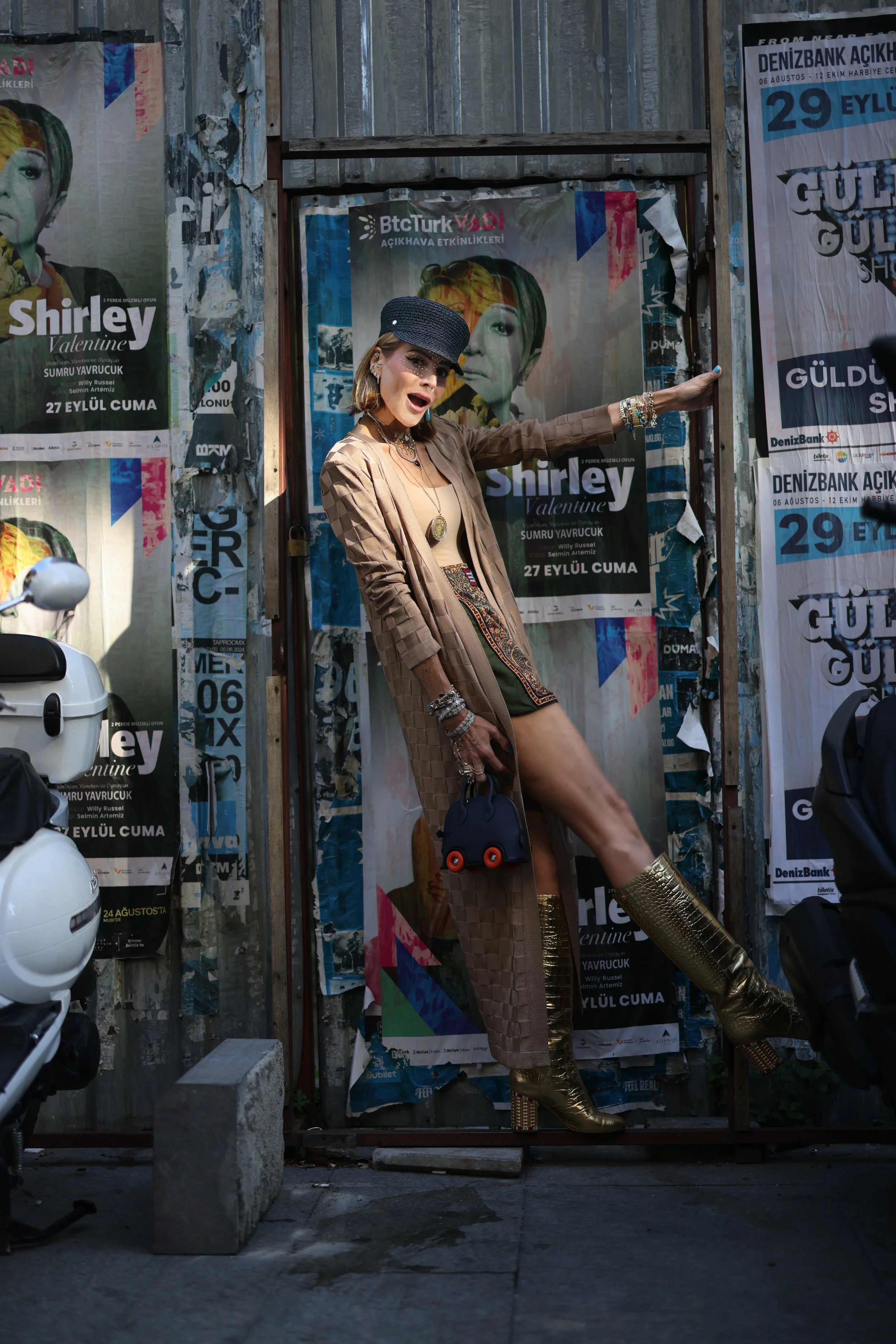IN CONVERSATION WITH ALEGRA TOREL
interview by JANA LETONJA
photography APRIL BRAND
Alegra Torel is a Turkish-British psychotherapist, conflict resolution specialist, and modern gypset whose life and career defy convention. A former model turned jewellery maximalist and tastemaker, she has moved seamlessly between worlds—advising members of the Saudi Royal Family, steering business development for luxury brands, and building a decade-long career in mental health. From working with patients on Los Angeles’ skid row to running her own thriving private practice, Alegra has become known for her fearless, unfiltered approach to therapy and life. With her signature mix of British wit and Turkish fire, she unapologetically occupies what she calls the “FU position,” challenging norms, reshaping conversations around wellness, and exploring the intersections of culture, identity, and human connection.
Your career has been anything but linear. How do you see the thread that connects modeling, luxury, conflict resolution, and psychotherapy?
Human psychology connects everything. It’s the why behind how, who, what, where, etc. The more I experience, the more dots I can connect. I am the human condition and we all are.
Do you think your multicultural upbringing, being Turkish-British, has shaped the way you approach people and their stories?
Of course. Cultural context is everything. As my father always says, “Monkey see, monkey do,” therefore what shapes us is how we vibrate out.
What made you pivot from luxury and business development into mental health, and how did that transition change you personally?
I know it seems like such a vast difference, but really it’s one and the same. Consumerism is all based on how we see ourselves because that shapes how we determine value. That’s totally mental health. Ask me about how I saw myself when I went through my depression and that will tell you the answer. But now I want to go deeper and help women understand that connection and the how.
You’ve described occupying the “FU position.” What does that mean for you as a therapist, and how do clients respond to that unapologetic stance?
Good question. The FU position is probably why I’m a better advocate than I am a therapist. Boundaries are really important as a therapist. We’re bound to the board of ethics, which very much stipulates boundaries. My husband calls me the human cat lady so I’m clearly not one for boundaries. I’m genuinely shite at keeping those because the FU position is all encompassing. I want to protect, to fight for, to lead-all the things I’m definitely “forbidden” to do as a therapist. My Retail Therapy talks and hopefully the show allow me to advocate whilst using psycho education from being a therapist to empower women into the FU position.
Many people still see therapy as clinical or restrained. How do you bring boldness, culture, and individuality into the work you do?
You’d have to ask clients that. I can’t speak for them. I bring my honesty and authenticity. I'm relentless and share my fears, anxiety and truth. I'm definitely not your average therapist.
In your view, what’s the biggest misconception about therapy today?
That it’s going to “fix you.” That you’re going to be “happy” after.
With social media amplifying both conflict and influence, how do you think the rules of human connection are changing?
I think it allows for people to find their fit, whatever that looks like for them. Social media allows for so much of everything that one doesn’t have to compromise on fit, and nor should they.
Your style—jewellery maximalism, bold expression—feels like an extension of your worldview. How does fashion tie into your sense of identity and presence?
It’s literally me. It’s confusing, contradictory, hypocritical, non conformist, all or nothing and everything in between.
You’ve navigated depression, divorce, and motherhood. How have those personal experiences shaped your approach as a therapist and a woman?
My focus is the Retail Therapist talks and hopefully the show. I use the talks as my platform. As a woman, it’s given me the power to say all the things.
Finally, if there’s one “rule” of modern living you think we should all break, what would it be?
Get out of your comfort zone. Whatever you thought was comfort, isn’t.



